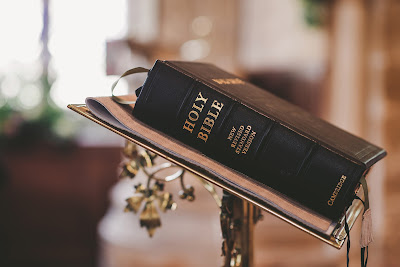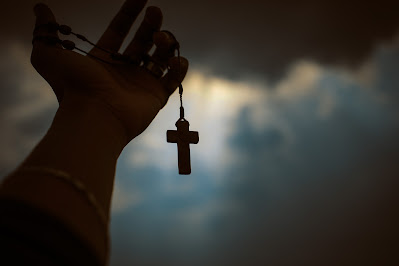"they will bathe their feet in the blood of the wicked"
Psalm 58 is typically included in the list of the imprecatory psalms. The word "imprecatory" comes from the Latin word imprecari, which means "to call down evil, to curse." Psalm 58, like the other imprecatory psalms, are prayers invoking judgment, calamity, or curses upon the enemies of God. The line above from Psalm 58, in context, illustrates:
The righteous will rejoice when they see vengeance done;
they will bathe their feet in the blood of the wicked.
People will say, “Surely there is a reward for the righteous;
surely there is a God who judges on earth.”
How are we to read such prayers, especially in light of the One who said "Love your enemies"?
Approaching the imprecatory psalms is well trod territory, so my observations here are not new. But a few observations.
First, the Bible goes there. Deep into the hatreds of the human heart. There is an honesty here that is often missing in Christian contexts. This lack of honesty is one reason people find recovery communities, like AA, better spiritual company than sitting in pews on a Sunday morning.
Relatedly, this lack of honesty is a reason why Christian art struggles to be good art. Unwilling to explore or portray the darkness of the human experience, Christian art tends to be superficial, shallow, sentimental, and kitschy. Precious Moments and Thomas Kinkade. You can't say that about the Bible.
Second, do we really want to concern-troll and tone-police victims? The poet cries out for vengeance in Psalm 58 because of oppression, injustice, and violence. These are deeply human emotions. Consequently, do you really want to cluck cluck and tut tut at the rage being expressed by a rape victim? Or from the family of a murdered child? From a people who have suffered generations of slavery, terror, and lynching?
On this point, I find it deeply ironic how progressive Christians, who tend to be the most triggered by the imprecatory psalms, are the most sympathetic when victimized groups resort to violence. Consider, as a recent example, the progressive response to Hamas' attack on Israel: While what Hamas did was not good it was at least understandable given the oppressions the Palestinians have suffered.
And lest any pro-Israeli readers feel left off the hook here, consider how after the Hamas attack any violence committed by Israel, even the killing of children, was defended as tragic but morally justifiable. On both sides of the Hamas/Israeli conflict we've seen how violence coming from a victimized group is legitimized.
My point here is that while we might not like Psalm 58, nor take ethical guidance from it, everyone understands Psalm 58. Victims understand Psalm 58. Easily triggered readers of the Bible would do well to remember this.
Third, I have a post coming out in a few weeks about how the contemplative tradition has read the Psalms. Specifically, the enemies and the bloodshed of the imprecatory psalms are taken to be describing spiritual warfare. The enemies in view are the demons. To be sure, I doubt this take will please many, or be widely adopted as the main hermeneutical lens on these psalms, but there is a path here toward a venerable and non-violent reading of the imprecatory psalms. Instead of expressions of hate these psalms become prayers against hate (in the form of demonic temptation).
Fourth, concerning spiritual warfare, the oppressors named at the start of the Psalm are not human beings, they are gods:
Do you indeed decree what is right, you gods?
Do you judge people fairly?
No, in your hearts you devise wrongs;
your hands deal out violence on earth.
Here, as in other places in the Psalms, we encounter the strange cosmology and angelology of the Bible. The source of violence and oppression on the earth is due to divine archons who "rule" and "steward" the nations. These are the "principalities and powers" of the New Testament. Satan is the chief of these dark powers, the "god of this world" and the "prince of the power of the air."
Given this cosmology, we can legitimately read Psalm 58 as being directed at these spiritual archons, and Satan principally so. In fact, I would confidently argue that this is exactly how Jesus read these psalms. Throughout the gospels Jesus directs violence and hatred away from human beings to focus it upon his battle with the devil. This is one of the big points I make in
Reviving Old Scratch, how when we moderns dismiss the devil from our spiritual and moral considerations our violence has nowhere to go but toward other human beings. Without the demons we will demonize each other. By shifting our vengeance away from "flesh and blood" toward the "principalities and powers in the heavenly realm" dark human emotions can be safely redirected and deflected away from human persons.
Finally, another way Jesus reads these psalms is eschatologically. We cry out for vengeance, but judgement is deferred and left to God. Oppressors and evildoers will face a reckoning, and the victims of history will be vindicated. But this is not our job. We pray Psalm 58 as an eschatological lament. We leave the judgment of history to God.













.jpeg)










